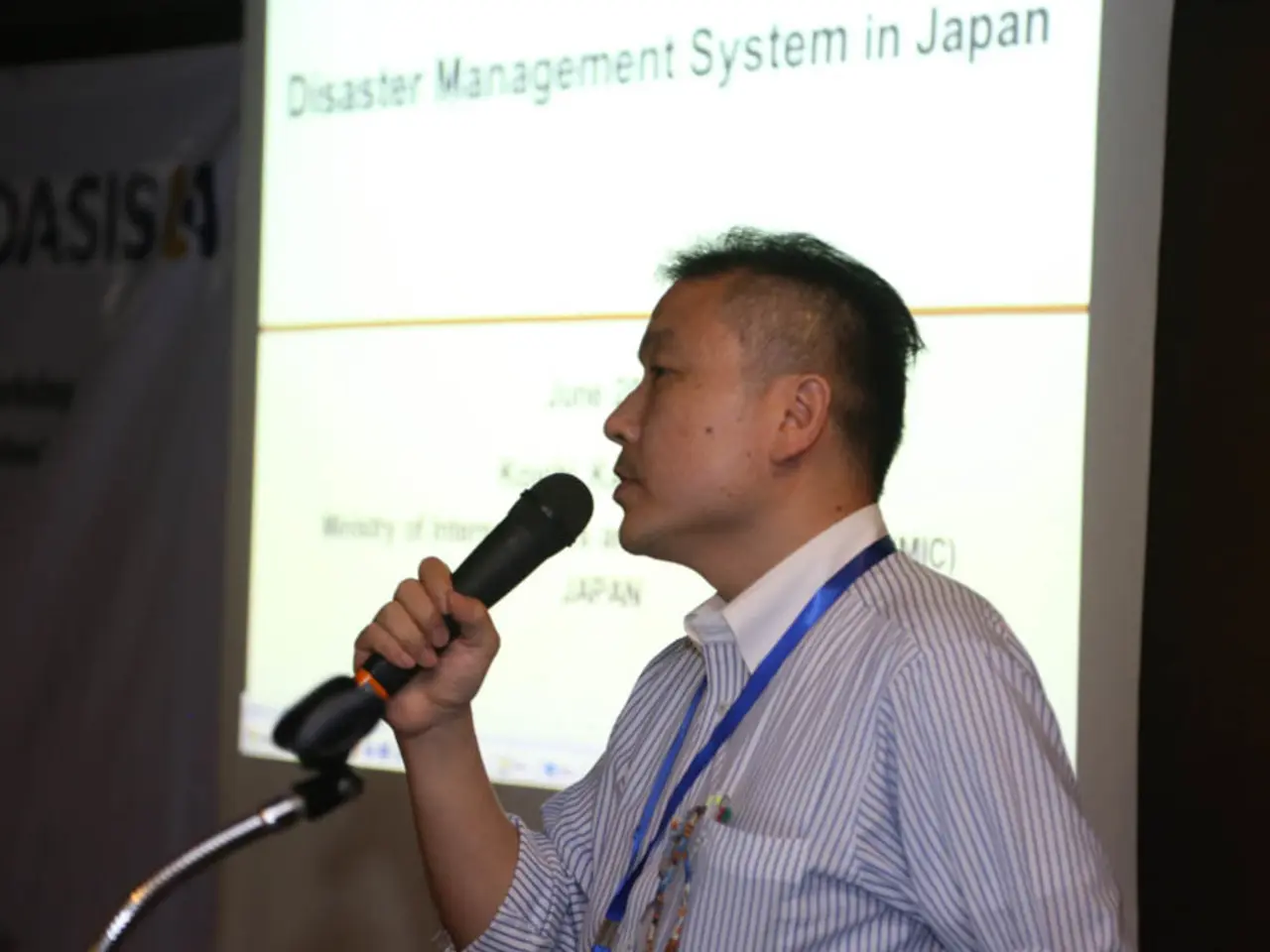Guiding Political Leaders Through Testy Situations: Crisis Navigation Strategies
Political leaders are often faced with crises, ranging from natural disasters to political unrest and economic upheaval. In such challenging times, effective crisis management is crucial for protecting their reputation, navigating crises successfully, and building a strong connection with their communities.
Communicate Early, Often, and Transparently
Timely, accurate, and transparent communication is essential to build public trust, reduce confusion, and maintain credibility. Leaders should use multiple channels to keep the public and stakeholders informed continuously and honestly, including admitting uncertainties and providing regular updates.
Designate a Skilled Spokesperson
Political leaders or designated credible spokespersons should deliver consistent messaging and handle media inquiries to avoid mixed messages or confusion during high-stress situations.
Coordinate and Partner with External Agencies
Effective crisis responses require collaboration with local emergency services, government agencies, and external experts. This interagency coordination improves resource sharing, response times, and overall crisis handling.
Conduct Scenario Planning and Preparedness Exercises
Anticipating possible crisis scenarios through simulations helps test and improve response strategies. This includes involving diverse stakeholders and updating plans regularly to reflect new information or threats.
Lead with Intent and Calm
Political leaders must lead decisively without panic, demonstrating confidence and strategic focus. This leadership attitude strengthens organizational resilience and public confidence.
Document Decisions and Actions
Keeping detailed records of decisions made, resources used, and actions taken supports accountability, legal protection, and facilitates after-action reviews.
Embrace Crises as Opportunities for Growth
Viewing setbacks not merely as failures but as chances to innovate, learn, and improve governance can enhance leadership effectiveness and community resilience.
Post-Crisis Evaluation and Recovery
After managing the immediate crisis, leaders should conduct formal after-action reviews to identify successes and shortcomings, update plans and training accordingly, and support community rebuilding and trauma recovery efforts.
Preparation is Key
Preparation, including having a crisis management plan and a well-trained team, is key to responding quickly and effectively to crises. A strong team of experts and professionals is necessary for effective crisis management, with each team member having a distinct role.
Empathy and Compassion
Political leaders should approach crises with empathy and compassion, understanding the emotional trauma and insecurity of their constituents. Showing sympathy can take many forms, from visiting affected or grieving families to genuinely listening to people's concerns.
Avoid Overreaction
Overreacting during a crisis can create confusion, amplify the issue, and detract from key messages or policy focus. A rapid response team offers quick assessment, strategic messaging, and real-time media coordination during a crisis.
Learn from Shortcomings
After a crisis, it's essential to evaluate the management and learn from shortcomings to avoid repeating mistakes. Crises can be a learning opportunity if leaders take the time to learn from them.
In conclusion, successful crisis management by political leaders hinges on proactive preparation, clear and consistent communication, collaboration, decisive leadership, and learning from the crisis to improve future resilience.
Political leaders must leverage social media platforms to communicate effectively, safeguarding their reputation, providing updates, and fostering a sense of connection with communities.
Keeping personal growth and education-and-self-development in mind, leaders should use their reputations to promote online learning resources for their constituents, helping them navigate life challenges and building societal growth.
Mindfulness and empathy towards the public's welfare can help leaders address migration issues, advocating for fair policies and providing essential services to those in need.
Responding to war-and-conflicts afar, leaders can utilize their influence to promote diplomacy and enact policy-and-legislation aimed at promoting peace and future stability.
By focusing on career-development and productivity, leaders can help create jobs and economic opportunities, benefiting their communities while growing their administrative resources.
During peace time, leaders can use their platforms to discuss general-news, fostering a culture of lifelong learning, and encouraging lifelong skill-training.
Adhering to ethical goal-setting, leaders should work towards improving policy-and-legislation, ensuring justice and minimizing accidents, such as car-accidents, fires, and crimes, within their jurisdictions.
When addressing complex situations like crises, it is vital to approach them not only from a political angle but also consider their impact on their own personal and professional lives, promoting personal-growth, and property preservation.
In the unfortunate event of a crisis, leaders should handle it with calm, convey improper actions as opportunities for improvement, and engage in reflection on what went wrong to enhance crisis management capabilities and resilience moving forward.
Ultimately, a proactive crisis management strategy that includes communication, preparation, collaboration, decisive leadership, empathy, and self-reflection will empower leaders to navigate various crises successfully and promote a more stable and supportive society.




